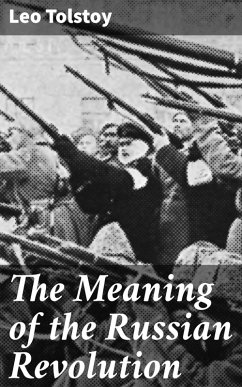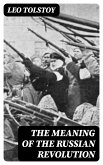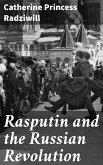In "The Meaning of the Russian Revolution," Leo Tolstoy delves deeply into the philosophical underpinnings of revolutionary thought, underscoring the moral imperatives that drive societal change. Written in the wake of the 1917 Russian Revolution, this compelling work combines Tolstoy's signature narrative style with incisive social commentary. Utilizing a blend of essay, political treatise, and autobiographical reflection, he examines not only the events themselves but the broader existential questions they pose about freedom, justice, and individual conscience in a rapidly changing world. Tolstoy's reflections challenge readers to contemplate the ethical implications of revolution, urging a more profound understanding of human interconnectedness amidst chaos. Tolstoy, widely acclaimed for his literary masterpieces such as "War and Peace" and "Anna Karenina," was deeply influenced by the moral and social upheavals of his time. His commitment to pacifism and social reform, rooted in his Christian beliefs, informs his analysis in this book. His personal experiences, coupled with a lifetime of observing human nature, provided him the lens through which to crystallize his thoughts on the revolutionary spirit that gripped Russia. This book is essential for readers seeking to understand the philosophical dimensions of revolution and the moral inquiries that arise from it. Tolstoy's rich insights resonate not only within the historical context of early 20th-century Russia but also raise enduring questions about the nature of power, change, and moral responsibility, making it a critical read for both scholars and general readers interested in social justice.
Dieser Download kann aus rechtlichen Gründen nur mit Rechnungsadresse in A, B, BG, CY, CZ, D, DK, EW, E, FIN, F, GR, H, IRL, I, LT, L, LR, M, NL, PL, P, R, S, SLO, SK ausgeliefert werden.









